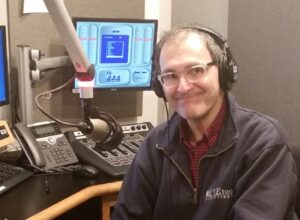
Gordon Rothman, Audiobook Director
With audiobook sales on the rise, indie authors are wondering whether — and how — to create audio versions of their self-published books. As Gordon Rothman explains, you might not be suited to narrating your audiobook. And for those that do, he offers some practical tips.
You have a new book. Should it also be an audiobook? More authors and publishers are saying, “Yes.”
From 2016 to 2017 revenue from audiobooks shot up 22 percent among major publishers reporting to the Audio Publishers Association. That makes audio by far the fastest growing segment of the book industry. As more people own smart speakers, that’s going to grow.
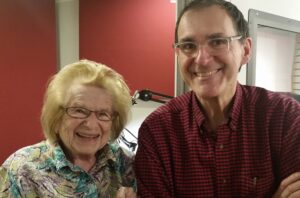
Dr. Ruth Westheimer (renowned sex therapist and prolific writer) and Gordon Rothman
As a freelance audiobook director for some of the biggest publishers, I’ve worked with a wide rage of author-narrators from best-selling writers including Robert Caro and James Fallows, to national broadcasters and studio newcomers.
Like most industry professionals I’ve spoken with, I discourage novelists from recording their works, unless they are actors as well.
Fiction: Narrating Your Audiobook
As the writer, you know your characters and emotional arcs better than anyone. But translating them into sound is challenging. Each voice needs to be both distinct and consistent throughout the book. That voice needs to convey not just the text but the mood, the intent, and the relationship to other characters. This is the art and craft of an actor.
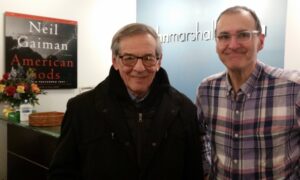
Gordon Rothman with Robert Caro, author of The Power Broker, The Years of Lyndon Johnson, and Working
If you do choose to narrate your novel, listeners may enjoy your language but pan your performance. On the subject of authors reading fiction, professionals tend to agree on two things. First, it’s usually a bad idea. Second, there are rare exceptions, though the only name anyone mentions is Neil Gaiman.
Nonfiction Audiobook Narration
If, instead, your book is non-fiction, especially a memoir, advice book, or other work with a first-person point of view, you should definitely consider reading it.
A lot of authors, even if they were reluctant at first, find it a rewarding experience. It can be satisfying for listeners, too. They tend to enjoy hearing the author, for the authentic, personal connection to the material. Are you comfortable putting your heart into the reading? Then you may be the right person to sit down in front of the microphone.
How to Prepare For Narration
Let’s talk about what it takes and how to prepare for a confident and comfortable recording session.
The recording should take roughly two days in the studio for up to about 50,000 words, and three days up to about 75,000. That assumes two to three hours in the studio for every hour of the finished recording. Your finished book will probably run about one hour for every 9500 words.
Whether a publisher is arranging the recording or you’re setting it up yourself, you’ll want to be sure that, at minimum, you are working with an engineer with audiobook experience. He or she will follow along as you read to help watch for mistakes and then fix them.
New narrators agree: it’s harder than it looks. It takes physical stamina and real focus. It’ll go better and faster if you’re well-prepared.
Here's how to prepare for a confident and comfortable audiobook recording session #audiobooks #indieauthors Share on XFirst, know your material.
I recommend that ALL authors read their books out loud, even if they are not planning to record them. Let that reading remind you what drove you to write the book, and what key ideas you’ll want to emphasize. It’s a great way to catch errors, too-long sentences, and clumsy construction. If you will end up doing the recording you may also want to mark important phrases as well as places that merit a longer pause. And if there are names or words you're not certain how to pronounce, it's better to check them before the recording starts.
Second, get a basic understanding of narration technique.
That includes how to achieve a sound that’s easy to listen to, how this medium differs from public speaking, how to connect to your material and your listener, and how to be comfortable for your long recording sessions.
Are You Studio Ready?
Because I have generally found new author-narrators to be not-quite-ready for the studio, I’ve created a new service called AuthorDirect Audio to help prepare them. It’s the only organization solely devoted to helping author-narrators, offering affordable video instruction, one-on-one coaching, and audiobook directing, all available online.
To learn more, please visit authordirectaudio.com
Over to You
What's your experience narrating your own audiobook? Were you surprised how hard, or how easy it was? What tips would you offer to other authors considering narrating their own work?

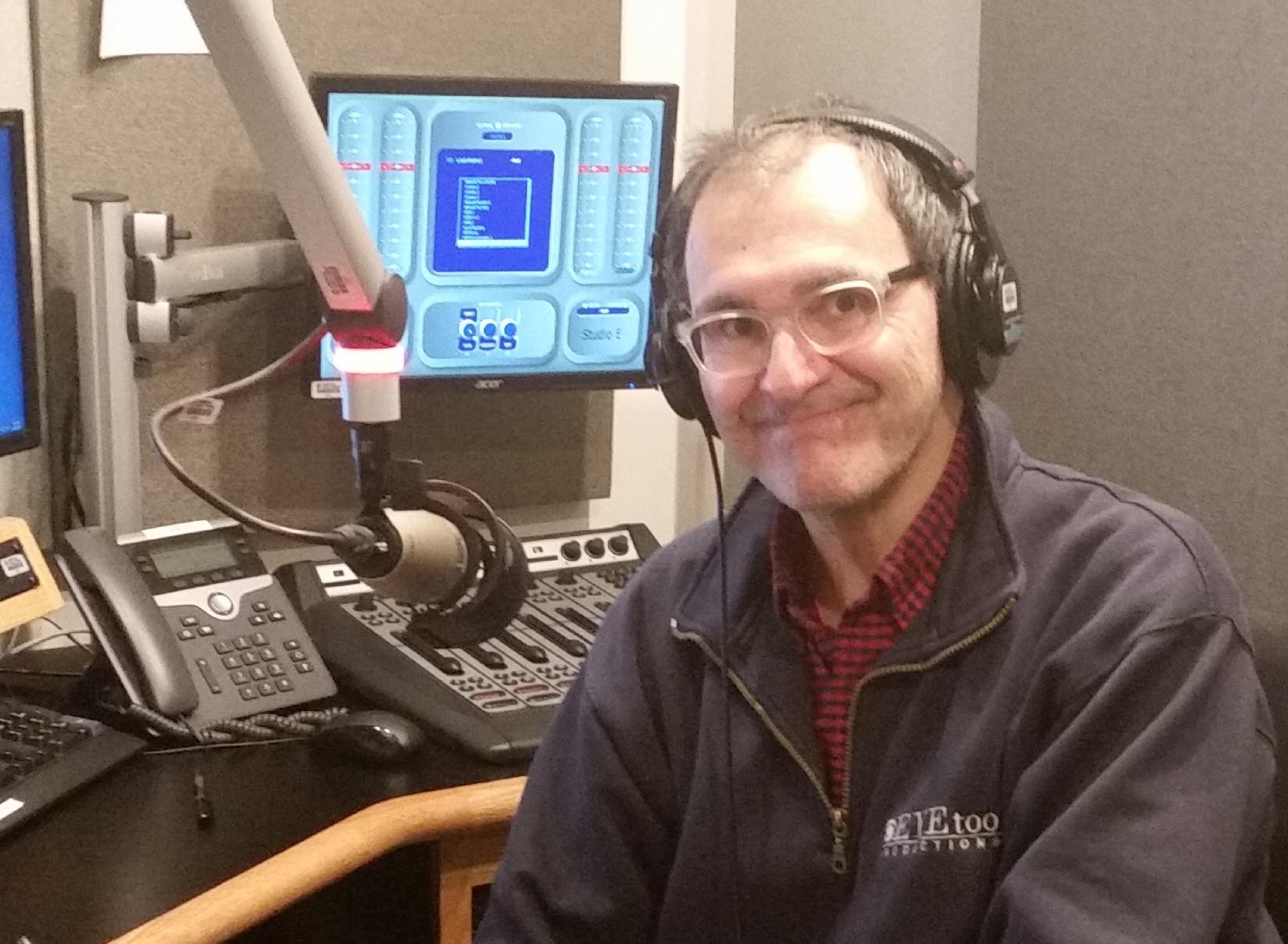
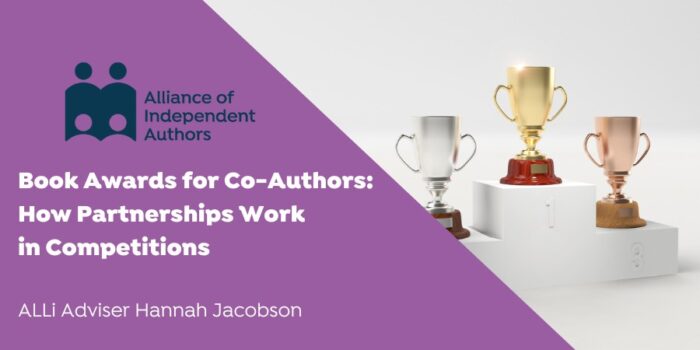

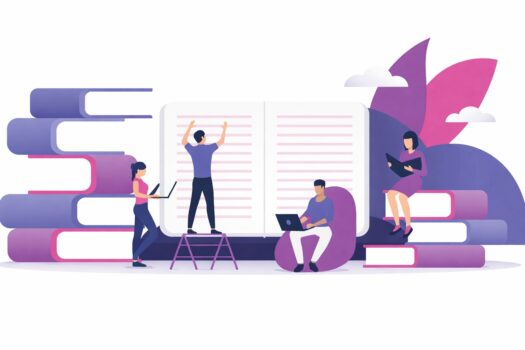
I have been searching everywhere for an answer to this question. I recently published my book and want to make it into an audiobook. It is a non-fiction book. There are a few long-form quotes that the authors generously permitted me to use. How should I reference that permission? Should I do it as part of the audio or provide a .pdf with my cited references?
In nonfiction books, is it best to omit reading the endnotes? i.e. the superscript # on the word and the endnote at the back of the book?
Hello Gordon,
Thank you for this Narrating guide!
I have a question that I believe you can answer:)
I am a narrator, new to the profession:)
I recently began recording audio books on ACX and am equipped to produce quality sound.
Question: There is a book I am interested in doing the audio for. It’s not listed as an audio book and not in Audible, at least from what I’ve been able to find. It is in soft cover, copyright 1957, published by Citadel Press.
What might the steps be for recording / producing this book for a publisher?
Any information would be helpful and appreciated!
Cheers,
Rob
Thanks for your comments, Paula and Glenn.
I’ve directed a lot of author-narrators, mostly non-fiction and have participated in occasionally extensive tweaks for audio. You’ll want to stick to the text most of the time. But you’ll sometimes need to revise your words so they’re every bit as clear to the listener as to the reader.
I consider the following to be “must fixes.” Replace references to the physical book, like “the list on the previous page” or “above” with phrases like “the list I read a few minutes ago” or “earlier.” Where there are photos or graphics, either delete references to them or describe the images.
Consider moving attributions earlier so the listener knows who’s talking. A long quotation followed by the name of its author may confuse a listener, who may assume those are YOUR words.
Also, if a sentence includes an extremely long phrase separating the noun from the verb, it might help the listener if you repeat the noun after that phrase.
When in doubt, let clarity be your guide. (FWIW, authors often tell me, “make a note: let’s make that change in the book, too”)
Great suggestions on this. Thank you! One question I have is for fiction about audio script vs. novel text. Is the audio version recorded exactly word for word as the novel is written in the published book? Does an author need to rewrite some parts of the novel into better “listening” narrative than what is written in the published novel? I’ve heard that some authors do rewrite certain parts but then other authors tell me no, that the audio MUST be word for word as the published novel. Your thoughts?
From experience in the last few weeks I would say not exactly word fro word.
Some situations and description (for example defining a speech e.g. ….she said pronouncing the word out as ‘I’t, in a Sloaney voice……) would not need to be in and stressing the situation or adding rather than just the date that it is say, 9 months in the future, which a listener may not pick up on with just the date. these are two examples but you see what I mean?
I hope that helps. Also sometimes you may need to ad lib a bit to make it work. NOT everything translates well from the written word to the spoken, that’s why they use script writers!
Interesting article and very pertinent as I am going through this very process myself.A Number of points,
-I agree with the article in many respects and as prime example just because authors can write it doesn’t necessarily mean that they can speak-I found this out when organist a book fair!
-My brother-in-law who tolerates me at best, when drunk said I had a good enough voice to do audio, i took that as a compliment and proceeded! But as the article says you will find it tiring and it is i doubt if anyone will do more than an hour at a time without a substantial break. You know when it is time to stop when you make more and more mistakes.
-Timing, yes you need to time it well, so think how you speak slow it down and then slow it another 20%, then you’ll have it right. take your time it is not a rush to get it done.
-Accents & Characters. if you are not a good mimic don’t try it and probably don’t try to record yourself. It takes practice and don’t over egg the omelette with a stage OTT say Irish accent. But a great tip i had from an actress was if you are changing character to have a line written in front of you that brings that voice/accent to life. So for example for Italian say have written down “Ciao , buon giorno, dove di ristorante” this brings out all the vowel sounds and gets your voice ready.
-Also I was advised to get an actress to do all the female parts and managed to get a local Am-Dram actress to do these. She is brilliant and it makes the book more enjoyable and interesting.
Lost more to add but too much for here. But word of warning as Gordon says it is VERY TIRING, do not underestimate that.